“You Have To Read This”

How many times have we all heard that? How many times have we said it (shouted it?) to someone else?
How many times have we followed the directive and been enthralled? How often have we followed the directive, and felt let down?
Recently, I joined the adult book club at my local library. If you’re thinking this doesn’t sound like me, you’d be right. And I joined the local writers’ group (not necessarily published, just writing) as well! What is wrong with this moth?! Well, as much as I don’t seek out socialization, and can only handle small doses of being around other people I hardly know, there are reasons I went head-on into this.
Reason 1: While I love my online writing/reading community, they are not always available to share thoughts, since we all live in different time zones and have varying in-person schedules. However, it meant that I realized I need to branch out in this area. And I do live within walking distance of the library, and the events there are held pretty regularly.
Reason 2: If I never go stray from YA fantasy, eventually I will run out of new books to devour. This is not a good thing for the creative soul. We need to refresh what we take in, not just crazily produce. So, I figured it would be good for me to branch out in this regard as well.
April is National Poetry Month (at least in America), so the librarian had a local poet come in and speak to the book club group.
Poetry and I have a complicated relationship; I understand poetry, but I don’t always like it. Poems that really explore the existential crisis of man are really not my thing. So, of course, this speaker was a writer of the latter. Oh, well. She was a very interesting speaker, with a very interesting style.
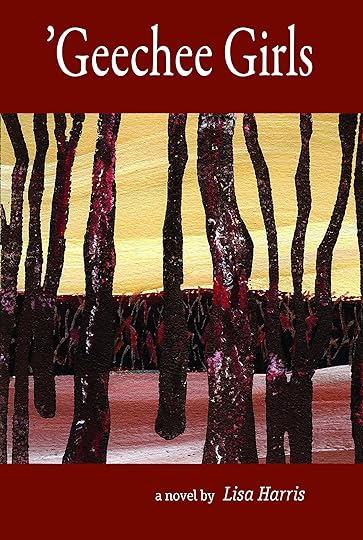
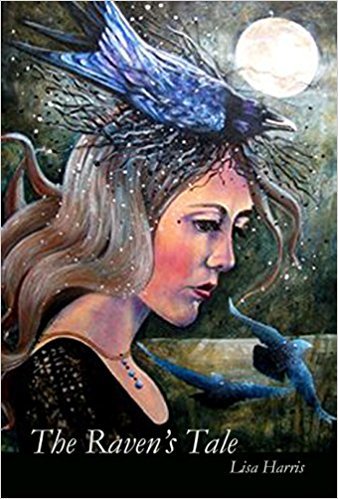
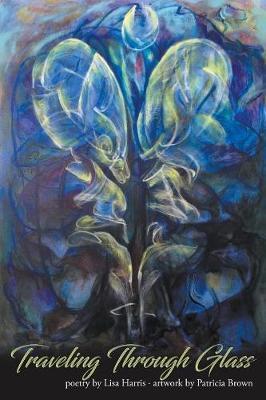
A Tale of Two Book Clubs
Above are her books (I believe they’re all on Amazon); “Traveling Through Glass” is the poetry collection. Lisa Harris has quite a lyrical style, and her plots and characters definitely focus on the existential stuff (which, again, isn’t much for me, but that’s just me). She researches a bunch on fading cultures (for example, the way Native Americans have become a minority) and world religions for her stories.
I have to say, though, that I honestly felt bad for many of the ladies in the book club, because they weren’t really fans of poetry, and some of them were struggling with the topic. I do agree that poetry can be challenging. My favorites are certainly the ones that tell a story, simply in verse (“The Highwayman”), or seem so straightforward on the surface (“Stopping by Woods on a Snowy Evening”) that the reader often doesn’t feel the need to dig deeper. (At least, I didn’t.) So, while I freely admit to sitting in the corner and not contributing to that conversation one iota, at least I was there, present, and taking in something I normally don’t.
Then we all received the selection for the next meeting: “A Piece of the World” (APOTW) by Christina Baker Kline. Never heard of the author, had no clue what the work might be about. Off to a great start on expanding the horizons.
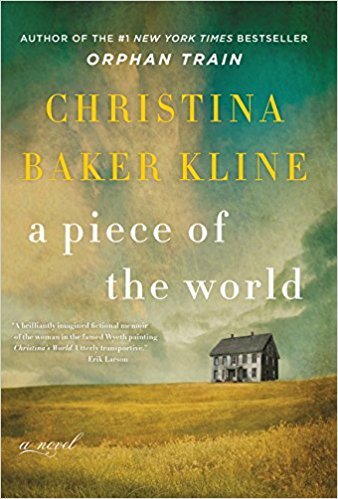
The tricky bit about book clubs is that you might get a real dud. This novel really irritated me. It’s supposed to be basically historical fiction, but I felt the author took waaaaay too many liberties, and I didn’t know enough about the real people in question (the artist Andrew Wyeth and the human subjects he painted) to be sure of how much was inspired by true events, and how much was the author going wild with “poetic license.” And I couldn’t get past that.
If I was writing a historical fiction, I’d set it in a real place and time period, but with completely invented characters. I’d be too afraid of getting it far too wrong. After all, when you’re writing about real people who once walked this Earth, had real feelings and perspectives, family and friends who cared about how they were seen, it feels insensitive to get away too much from the biographical material.
The librarian even admitted APOTW wasn’t her first choice; her first choice got taken by another club, and she suddenly wouldn’t have had something for us to read last month. Luckily, this month that choice was once again available, so it’s our title for the June meeting.
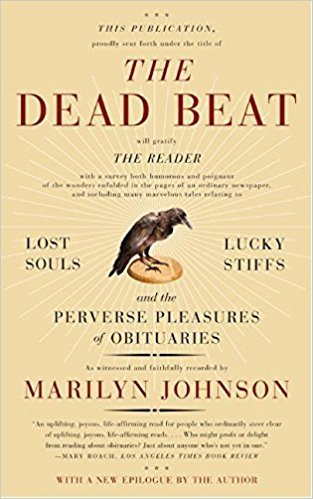
I love the idea of “The Dead Beat” (TDB). It’s not morbid, it’s simply a study of part of our culture. We do write obituaries for people who have just died; humans have done this, in one form or another, for centuries. These days, it’s mostly for the public record, and to let people know this individual is no longer with us. It’s a kindness. But, like so many other aspects of our society, when something has become so functional that it’s plain boring now, somebody wondered how we can spruce it up.
Hence, writing obituaries have become a literary art form. And while this niche does require a certain type of personality, I hardly view this interest as dangerously divergent or an unhealthy obsession. We’re all going to die one day; so, why not make the most of recounting our lives for those still breathing? Why not share our joys, heartaches, our triumphs, and struggles? As dull and mundane as most of us feel our existences are, I can guarantee we’ve all done something others would find amazing.
The Great American Read
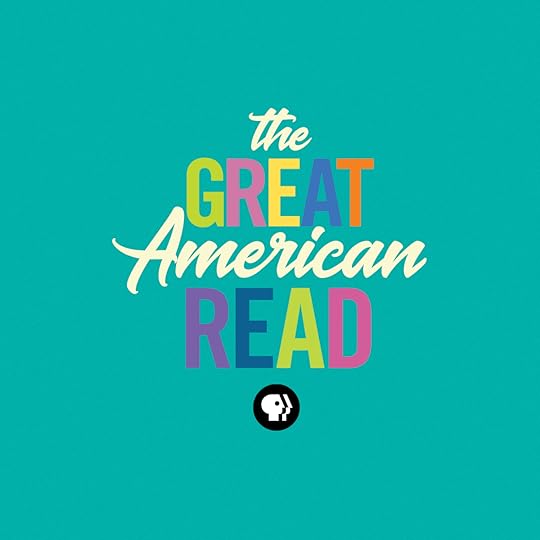
I saw the clip about this on PBS (one of the few channels I still watch). The Great American Read (TGAR) is a list of 100 books, determined by compiling data of consistently referred fiction titles within the last several years. Not just the classics, or the stuff on high school English curriculums. (or example, both Lord of the Rings and The Hitchhiker’s Guide to the Galaxy are on this list.
This summer, our library is encouraging patrons to tackle TGAR and see if they can check off a few of the boxes. Yesterday I downloaded the master list and checked off my own boxes. It turns out I’ve already read 35 of the 100.
Many interesting thoughts get brought up by viewing the entire list. Like, why are there so many British authors on here? (JK Rowling, Charles Dickens, Douglas Adams, JRR Tolkien, CS Lewis, and more.) When the word “American” is in the name of the challenge itself? Maybe it shows that even the natives feel traditional “American” literature is in some way lacking?
Also, just how did they (whoever “they” are) determine what made the list and what didn’t? Is it purely stats of bestsellers? Why are “children’s” works like The Chronicles of Narnia and Harry Potter thrown in with Fifty Shades of Grey and Outlander? (No, I’m not kidding.) Some of the included are definitely controversial — such as Fifty Shades and Outlander, but also Twilight, Game of Thrones, and The Da Vinci Code. I’m not opening the floor to that topic (right now); I’m just pondering the apparent dichotomy.
There are also plenty of titles you’d expect to see — Gone With The Wind, The Call of the Wild, To Kill a Mockingbird, The Adventures of Tom Sawyer. You can find the whole list online; it’s quite a diverse and intriguing selection.
And I am proud to say I’ve read 35 of them. Especially since most of those 35 I enjoyed, and agree with the concept of yelling at the whole country to read them.
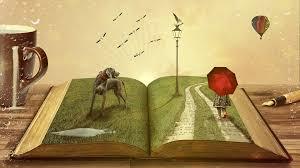
Daley Downing's Blog
- Daley Downing's profile
- 36 followers



